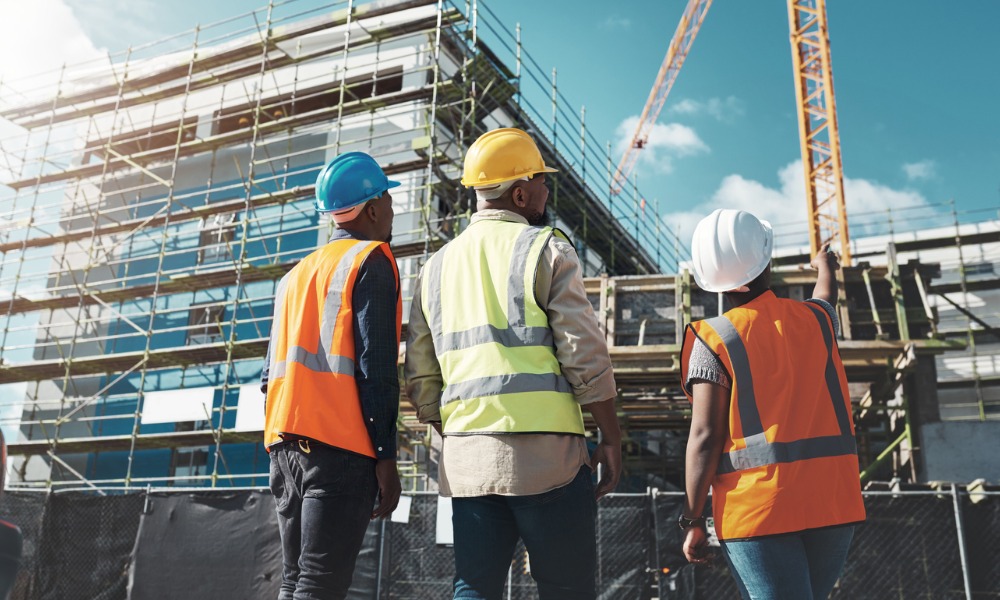
Report provides recommendations to support 2S/LGBTQ+ workers in Canada's construction industry

Despite all the talk about diversity and inclusion in the workplace, sexual minorities in the construction industry have worse experiences in their field compared with their heterosexual counterparts, according to a recent report.
Specifically, 16.1% of sexual minority women and 7.0% of sexual minority men rate their physical health as fair or poor, compared to 8.0% and 6.5%, respectively, among their heterosexual counterparts.
Also, 15.9% and 12.8% of sexual minority women and men, respectively, rate their mental health as fair or poor, compared to 6.5% and 4.8%, respectively, among their heterosexual counterparts.
More heterosexual men (85.5%) and women (81.8%) can also claim that they are very satisfied, satisfied and neither satisfied nor dissatisfied with their job compared with sexual minority men (82.5%) and women (76.0%).
Also, 24.7% of sexual minority women and 24.1% of sexual minority men suffer from quite a bit of stress and 6.8% of sexual minority women and 5.3% of sexual minority men suffer from extreme stress at work.
This compares to 17.8% and 19.2% of heterosexual women and men, respectively, who suffer from quite a bit of stress at work, and 5.3% and 3.7% of heterosexual women and men, respectively, who suffer from extreme work stress.
“Key informants framed mental health consequences as closely connected to negative effects on workplace productivity and performance,” said authors Audrey Appiah, Chloe Halpenny and Basia Pakula in their report titled 2S/LGBTQ+ populations in the trades in Canada: Exploratory insights. “They observed 2S/LGBTQ+ tradespeople working in fear, silence, and isolation, and feeling disconnected from their company as a result.”
Previously, Starbucks and Google faced backlash over their Pride events and policies.
Out of the survey sample of 45,899 respondents in the Appiah et al. report, 93% identified as heterosexual men. Comparatively, just 0.3% identified as heterosexual women, 0.5% as gay men, 0.6% as lesbian women, 0.2% as bisexual men and 0.2% as bisexual women.
“While 2S/LGBTQ+ people are almost certainly underrepresented in the construction trades compared to their cisgender, heterosexual counterparts, it is also likely that 2S/LGBTQ+ tradespeople are undercounted in the existing data,” said the researchers in the report.
It may be because some people are afraid of coming out due to their perceived consequences. As one respondent to the report put it: “I do know some individuals, they’ve come into the trades after transition[ing] and people don’t know, and they’re not willing to disclose that. They don’t think it’s safe…Even though they’re proud of who they are, it’s not safe to disclose.”
Another interviewee echoed this: “Threats of violence, and because of that silencing, forced closeting. People don’t come out at work. They can’t.”
Employees who identify as members of the LGBT+ community want to be out at work, but many don't feel comfortable enough to do it, according to a previous Deloitte report.
To address the situation of sexual minorities in construction, Appiah et al. shared the following recommendations to employers: